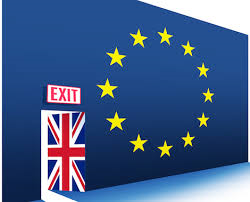Blog Archive

Call for Papers
The Utrecht Journal of International and European Law (UJIEL), is issuing a Call for Papers to be published in its forthcoming Special Issue on European Law (February 2018). The Board of Editors invites proposals from research institutes and projects who wish to showcase the work of their researchers in an Open Access Special Issue. Institutes and projects seeking collaboration are invited to email us at utrechtjournal@urios.org.
For further information please consult our website:www.utrechtjournal.org
Deadline for Submissions: 25 August 2017
The Utrecht Journal of International and European Law is an Open Access, peer-reviewed, biannual law journal of Urios, the Utrecht Association for International and European Law. It was founded in 1981 in Utrecht, The Netherlands. Our latest special issue was prepared in co-operation with The Public International Law & Policy Group (PILPG), a global pro bono law firm and Nobel Peace Prize nominee (http://www.utrechtjournal.org/15/volume/33/issue/84/).
Read more
Dutch DPA shares new data about the Right to be Forgotten
 Three years ago, the European Court of Justice gave judgment in the Google Spain-case, which established the so-called ‘right to be forgotten.’ This right enables individuals to require from search engines that they remove irrelevant search results for searches on their name.
Three years ago, the European Court of Justice gave judgment in the Google Spain-case, which established the so-called ‘right to be forgotten.’ This right enables individuals to require from search engines that they remove irrelevant search results for searches on their name.

‘De EU moet Hongarije’s glijvlucht naar autocratie stoppen’
Voor NRC schrijven Ton van den Brink en Anna Gerbrandy de nieuwe Europa-colum. Hieronder een voorproefje.
De Centraal-Europese Universiteit (CEU) is voor de Hongaarse regering de zoveelste bedreiging van de nationale identiteit. Zij moet dus sluiten. Hoe kan het toch dat een land dat vol overtuiging voor het EU-lidmaatschap heeft gekozen zijn middelvinger opsteekt naar EU-waarden en er nog mee wegkomt ook? Moet de EU hier niet optreden?
Het gaat immers niet om één keer, maar om een reeks verontrustende maatregelen: de regering Orban probeerde al de onafhankelijkheid van rechters, de centrale bank en de media aan te tasten en heeft mensenrechten geschonden door vluchtelingen op te sluiten en minderheden (zoals de Roma) te discrimineren. De Hongaarse rechtsstaat is veranderd in een autoritaire staat en de regering doet geen enkele moeite om de ramkoers richting ‘Brussel’ zelfs maar te maskeren.
De volledige column is te lezen op NRC.nl.
Read more
Informatiebubbel geen verkiezingsissue: een gemiste kans
Op 15 maart ga ik – en ik hoop met mij miljoenen andere Nederlanders – naar het stembureau voor de Tweede Kamerverkiezingen. Als toezichthouder op de media kijk ik natuurlijk met speciale belangstelling naar wat de verschillende politieke partijen in hun verkiezingsprogramma zeggen over de onafhankelijkheid, pluriformiteit en toegankelijkheid van het media-aanbod.
Dat zouden alle kiezers trouwens moeten doen. Media zijn immers de pijlers onder onze democratische rechtstaat. Zij bieden ons informatie en helpen bij onze meningsvorming. Daarmee dragen ze in sterke mate bij aan de kwaliteit van onze democratie. Wat de verschillende partijen in hun verkiezingsprogramma over media zeggen, leest u in dit overzicht.
Read more
EU citizenship: a slipping anchor to hold on to rights? Brexit and the consequences for EU citizens with British nationality
 This summer many European citizens woke up in shock. Whilst reading the newspaper, listening to the radio, scrolling on Facebook, having breakfast, we learnt that a small majority of the voters in the Brexit referendum voted to leave the European Union. Not only does the (potential) Brexit have consequences for the internal market and the economic and social rights of EU citizens, but it also threatens their status as such. This is shocking for EU citizens with the nationality of another Member State residing in the United Kingdom, because their status will be redefined. For instance, in the future they will no longer be able to rely on equal treatment based on EU citizenship in the United Kingdom. Possibly even more shocked were British nationals, who might now actually lose their status as EU citizens, either living in the United Kingdom or elsewhere in the European Union. This will significantly impact their possibilities to work, study, and take up residence in another EU Member State.
This summer many European citizens woke up in shock. Whilst reading the newspaper, listening to the radio, scrolling on Facebook, having breakfast, we learnt that a small majority of the voters in the Brexit referendum voted to leave the European Union. Not only does the (potential) Brexit have consequences for the internal market and the economic and social rights of EU citizens, but it also threatens their status as such. This is shocking for EU citizens with the nationality of another Member State residing in the United Kingdom, because their status will be redefined. For instance, in the future they will no longer be able to rely on equal treatment based on EU citizenship in the United Kingdom. Possibly even more shocked were British nationals, who might now actually lose their status as EU citizens, either living in the United Kingdom or elsewhere in the European Union. This will significantly impact their possibilities to work, study, and take up residence in another EU Member State.

Brexit and ‘mexit’? The legal dimension of the EU Single Market and Brexit
 A few weeks ago the High Court ruled in favour of the role of the UK Parliament in the process of triggering Article 50 TEU. Some newspapers reacted with fury, like the Daily Mail branding the judges as the ‘Enemies of the People’. These reactions constitute an unprecedented attack on the independence of the judiciary, which according to MPs and other commentators undermines the rule of law. These are the latest developments in a series of tumultuous events surrounding the Brexit decision, which have important ramifications for the EU and for the UK.
A few weeks ago the High Court ruled in favour of the role of the UK Parliament in the process of triggering Article 50 TEU. Some newspapers reacted with fury, like the Daily Mail branding the judges as the ‘Enemies of the People’. These reactions constitute an unprecedented attack on the independence of the judiciary, which according to MPs and other commentators undermines the rule of law. These are the latest developments in a series of tumultuous events surrounding the Brexit decision, which have important ramifications for the EU and for the UK.

Mag de Amerikaanse justitie onze emailgegevens inkijken?
Europese gebruikers van Gmail, Hotmail en MSN zijn voorlopig veilig voor de lange arm van de Amerikaanse wet. Een Amerikaanse rechtbank besliste vorige week (14 juli 2016) dat de Amerikaanse justitie Microsoft niet kan dwingen emailgegevens over te leggen die in een Iers datacentrum waren opgeslagen. De beslissing zou echter zomaar een Pyrrusoverwinning kunnen zijn voor internationaal opererende Internetproviders en gebruikers bezorgd om hun privacy. Niet alleen kan de Amerikaanse justitie nog in beroep gaan bij het Amerikaanse Hooggerechtshof, ook kan het Amerikaanse Congres steeds een andersluidende wet aannemen. De beleidsvraag hierbij is hoe we een efficiënte bestrijding van de transnationale misdaad kunnen verzoenen met adequate gegevensbescherming en respect voor de soevereiniteit van andere landen.
Read more
Gender bias in de academische wereld: vier Spinoza prijzen

Anna Maria Schuurman (eerste vrouwelijke student UU)
In december 2015 organiseerde Linda Senden met Mirella Visser van het Centrum voor Inclusive Leadership een seminar over de gelijke behandeling van man en vrouw als een van de kernwaarden van de Europese Unie (artikel 2 en 3 lid 3 van het Verdrag van de Europese Unie), het beginsel van gelijkheid van mannen en vrouwen (artikel 23 van het Handvest), en de vrijheid van beroep en het recht om te werken (artikel 15 Handvest). Om dit te realiseren streeft de EU er op grond van artikel 8 van het Verdrag betreffende de werking van de Europese Unie er bij elk optreden naar de ongelijkheden tussen mannen en vrouwen op te heffen en de gelijkheid van mannen en vrouwen te bevorderen. In de praktijk is het echter ook op Europees niveau nog zoeken naar mogelijkheden om regelgeving zo in te richten dat gender diversiteit wordt gestimuleerd. Een voorstel daartoe voor een richtlijn “inzake de verbetering van de man-vrouwverhouding bij niet-uitvoerende bestuurders van beursgenoteerde ondernemingen 2012” is een voorbeeld van de voetangels en klemmen die daarbij een rol spelen. Tijdens het seminar werd vooral gekeken naar hoe naast de overheid ook de industrie een belangrijke rol en verantwoordelijkheid hierin heeft. Een van de conclusies van de organisatoren van het seminar was, dat het eigenlijk onvermijdelijk is om harde quota in te voeren, ook al betekent dit een vergaande ingreep in de vrijheid van ondernemerschap (artikel 16 Handvest).
Read more
Blow that whistle!
 In April 2014, the Albanian Ministry of Justice and the Minister of State on Local Issues granted the Willem Pompe Institute for Criminal Law & Criminology the task of designing a Whistleblower Protection Law for Albania. This project was supported by the Embassy of the Netherlands in Albania and funded by the Dutch Rule of Law Programme. The team responsible for drafting the Law and the explanatory memorandum consisted of researchers from the Research Programmes UCALL and RENFORCE: François Kristen (UCALL), Eelke Sikkema (UCALL), John Vervaele (RENFORCE), Dina Siegel-Rozenblit (RENFORCE) and myself (RENFORCE). The draft Law and the explanatory memorandum were sent to Tirana in March 2015, and in the beginning of June this year, the Netherlands Embassy announced that the Albanian Parliament had approved the Whistleblower Law. The Law will enter into force once it is promulgated by the President of the Republic and published in the Official Gazette. However, it is important to note that until its publication in the Official Gazette we do not know to what extent the approved Law differs from the draft Law we submitted.
In April 2014, the Albanian Ministry of Justice and the Minister of State on Local Issues granted the Willem Pompe Institute for Criminal Law & Criminology the task of designing a Whistleblower Protection Law for Albania. This project was supported by the Embassy of the Netherlands in Albania and funded by the Dutch Rule of Law Programme. The team responsible for drafting the Law and the explanatory memorandum consisted of researchers from the Research Programmes UCALL and RENFORCE: François Kristen (UCALL), Eelke Sikkema (UCALL), John Vervaele (RENFORCE), Dina Siegel-Rozenblit (RENFORCE) and myself (RENFORCE). The draft Law and the explanatory memorandum were sent to Tirana in March 2015, and in the beginning of June this year, the Netherlands Embassy announced that the Albanian Parliament had approved the Whistleblower Law. The Law will enter into force once it is promulgated by the President of the Republic and published in the Official Gazette. However, it is important to note that until its publication in the Official Gazette we do not know to what extent the approved Law differs from the draft Law we submitted.

Balancing security and freedom in the Area of Freedom, Security and Justice
 The 2016 Annual European Criminal Law Academic Network (ECLAN) Conference was entitled “The Needed Balances of EU Criminal Law: Past, Present and Future”. One of the discussed topics was how to establish the right balance between measures that provide security and those that protect freedom. The point was strongly made that EU law to date has focused too much on establishing an Area of Security by adopting mutual recognition instruments and minimum harmonization measures which contribute to the protection of individuals against cross-border criminality. An example is the widening definition of offences linked to terrorist activities. After the 9/11 attacks, Framework Decision 2002/475/JHA was adopted whose provisions include the definition of terrorist offences and offences linked to terrorist activities. In 2008, Framework Decision 2008/919/JHA broadened the scope of offences linked to terrorist activities by criminalizing recruitment and training for terrorism. In 2015, as a response to the continuing and growing threat of terrorism, the Commission introduced a far-reaching proposal for a Directive on combating terrorism. Title III of this Directive on offences related to terrorist activities includes ‘travelling abroad for terrorism’, which is a new offence.
The 2016 Annual European Criminal Law Academic Network (ECLAN) Conference was entitled “The Needed Balances of EU Criminal Law: Past, Present and Future”. One of the discussed topics was how to establish the right balance between measures that provide security and those that protect freedom. The point was strongly made that EU law to date has focused too much on establishing an Area of Security by adopting mutual recognition instruments and minimum harmonization measures which contribute to the protection of individuals against cross-border criminality. An example is the widening definition of offences linked to terrorist activities. After the 9/11 attacks, Framework Decision 2002/475/JHA was adopted whose provisions include the definition of terrorist offences and offences linked to terrorist activities. In 2008, Framework Decision 2008/919/JHA broadened the scope of offences linked to terrorist activities by criminalizing recruitment and training for terrorism. In 2015, as a response to the continuing and growing threat of terrorism, the Commission introduced a far-reaching proposal for a Directive on combating terrorism. Title III of this Directive on offences related to terrorist activities includes ‘travelling abroad for terrorism’, which is a new offence.

